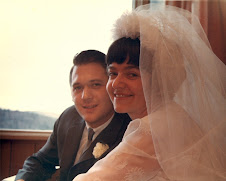And Life Goes On…
The Summer we made André and I got my Ph. D., we finished writing the adventure of our first ten children. "And Then There Were Ten" was written in English in the hope of finding a micro-market in the United States. The Québécois did not want to have children and our story would probably not interest them.
A few years before, a nation-wide enthusiasm, of which we were part, had elected in Quebec a political party whose goal it was to make this part of the world into an independent country. It later failed in winning the needed referendum to succeed. But one of the first actions taken by the new government had been to ratify the imposition of death upon their unborn children by parents who wanted to rid themselves of sexual mistakes. This contradictory action by those who would be fathers (or fathers and mothers) of an emerging nation mirrored the death-wish that was gnawing the hearts of the Québécois. In fact, we later realised that when the Parti Québécois came to power, it was already six years since the Québécois had begun dying out. Six years before, their birth rate had dropped below that needed to renew their population and has remained there since.
How could we ever be of interest to them?
It took five years to finish our manuscript.
The American publishers to whom we sent it were kind and courteous. I learned English on the streets in Manitoba and did not have many chances to practice it East of Montréal. Therefore, I feared my written English might annoy publishers. Surprisingly, some even liked the originality of my style. I have profited from the Norman invasion of England a long, long time ago. Since then, English often has two words to say or express the same thing: one comes from Anglo-Saxon and the other, more sophisticated word, comes from the Norman aristocracy, which was French. Since the English word of French origin instinctively came to my mind when I was writing, I came across as a person with a rich vocabulary.
Unfortunately the manuscript was not retained. Larger publishers said it did not fit the general public's taste. An evangelical publisher loved the story but felt it was too Catholic for its readership. A Catholic publisher thought the story wasn't universal enough. And the smaller Catholic publisher that might have liked the story thought the book would be too voluminous (that's French-Norman for having too many pages) for his meagre means.
At about that time, a young lady representing a Quebec school-book publisher came to our college. She was interested in publishing our department of philosophy's text-book in logic. And she also queried about our family story that I was supposed to have written, according to a common acquaintance.
"It's in English," I warned her. "I'm trying to have it published in the United States."
"It can be translated," she replied. "And you do not have a French publisher."
She was right, so she left with a copy of our manuscript.
The proprietor (that's Norman-French for owner) of the small publishing house found our story refreshing in our decayed social atmosphere. He loved it and wanted to publish it. He was even ready to publish it simultaneously in French and in English, if need be. His offer being the only one we had, it proved to be irresistible and was accepted.
The following Summer I translated "And Then There Were Ten" into "Pourquoi pas DIX?" (Why not TEN?).
The assistant-publisher asked me why our story stopped at ten while we had twelve children. He didn't know about the Stéphanie bonus.
I joked that we did not want to write a posthumous story and that twelve wasn't necessarily the end of the story. I added that "ten" had been our first set goal and we had achieved it. So we could tell that part of our story.
The English edition never came out. The French one came out at the same time as the popular magazine l'Actualité published a "Family Portrait" article about the Allaires of La Pocati re, giving us a certain celebrity.
This allowed us to get to know some marvellous families throughout Quebec who were also faithful to life. Some said our book helped them along. Discovering their story certainly helped us along.
* * *
By the time we have written these pages, Brigitte was born after André and Pierre is on the way. Why not add them to our story? Simply because each of our children brings a new world into our world and a new eternity into time. Each of them is a treasure far beyond stories written upon paper to be read during a fleeting moment. The essence of love made of body, heart and mind such as we are trying to live has now been told. We leave you to your own life and are going back to ours.
